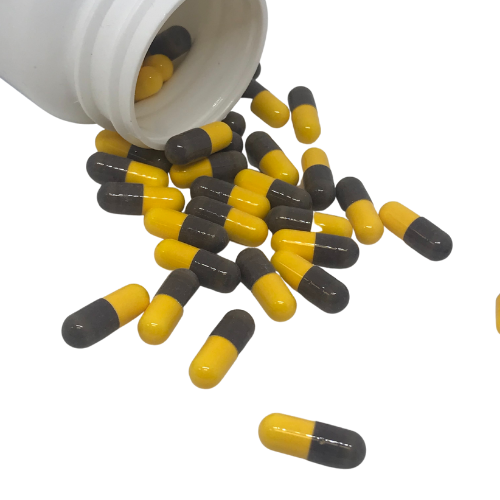Exploring the Mechanisms Behind Fenbendazole and Its Impact on Pet Wellness
Fenbendazole is an extensively used anthelmintic understood for its efficiency versus different bloodsuckers. Its main device involves the restraint of microtubule development, which interrupts vital procedures in these virus. Beyond its antiparasitic residential properties, fenbendazole additionally shows up to improve immune responses and possesses anti-inflammatory advantages. Understanding these diverse results could expose brand-new applications for pet health and wellness. Inquiries remain regarding its full capacity and safety and security profile.
The Pharmacokinetics of Fenbendazole
The pharmacokinetics of fenbendazole, an extensively used anthelmintic in veterinary medication, entails the research of its absorption, distribution, metabolism, and discharging within pet systems. After management, fenbendazole is swiftly taken in from the intestinal tract, with peak plasma concentrations occurring within hours. Its distribution is affected by factors such as tissue binding and lipid solubility, allowing it to permeate different tissues efficiently. The drug undertakes extensive metabolism primarily in the liver, where it is exchanged active and inactive metabolites. These metabolites play a duty in the medication's overall efficacy and safety account. Discharging occurs primarily via feces, with a smaller proportion removed via pee. The half-life of fenbendazole varies amongst types, which impacts application regimens. Recognizing these pharmacokinetic residential or commercial properties is vital for maximizing its restorative use and guaranteeing effective bloodsucker control in veterinary techniques.
Devices of Action Against Parasites
Fenbendazole exerts its antiparasitic impacts mainly with the inhibition of microtubule development in parasites. This disturbance impacts their architectural integrity and cellular functions, bring about impaired basal metabolism. As a result, the drug efficiently compromises the survival and recreation of different parasitical organisms.
Restraint of Microtubule Development
Inhibition of microtubule development represents a critical mechanism whereby certain anthelmintic agents, including fenbendazole, apply their impacts on bloodsuckers. Fenbendazole binds to tubulin, a protein that develops microtubules, interfering with the polymerization process necessary for microtubule setting up. This interruption impairs vital cellular functions, including mitosis, intracellular transport, and architectural stability. As microtubules play a crucial function in preserving the form and feature of parasitical cells, their inhibition brings about cell cycle apprehension and ultimate death of the bloodsucker. This mechanism is especially reliable against nematodes, as their dependence on microtubules for wheelchair and nutrient absorption makes them susceptible to fenbendazole. Subsequently, the restraint of microtubule development is an important aspect of fenbendazole's therapeutic efficacy in vet medicine.
Disturbance of Basal Metabolism
Interfering with basal metabolism is one more important device by which fenbendazole targets parasitical microorganisms. This anthelmintic alters the power manufacturing pathways within parasites, mainly affecting their capability to create adenosine triphosphate (ATP) By inhibiting glucose uptake and disrupting mitochondrial function, fenbendazole limitations the power resources essential for the survival and reproduction of these microorganisms. As an outcome, bloodsuckers come to be progressively vulnerable to environmental anxieties and immune actions. In addition, the disturbance in power metabolism not only affects the bloodsuckers directly yet additionally minimizes their capability to absorb nutrients, additionally impairing their development. Overall, the disturbance of basal metabolism represents a fundamental facet of fenbendazole's efficacy versus various parasitic infections, adding substantially to enhanced pet wellness results
Prospective Negative Effects and Security Profile
The possible negative effects and safety account of fenbendazole warrant cautious consideration, specifically in veterinary applications. While usually considered as safe, some pets may experience damaging reactions, consisting of intestinal disruptions such as vomiting and looseness of the bowels. Additionally, neurological signs and symptoms, although rare, have been reported in delicate people, highlighting the need for tracking throughout therapy.

Fenbendazole's safety in different varieties, consisting of dogs and felines, has been recorded, but dosage and period of therapy must be thoroughly handled to decrease threats. Pregnant or breast feeding pets might also require special attention, as the impacts on establishing fetuses or nursing offspring are not completely recognized.
Regular veterinary assessments can assist mitigate prospective side results and ensure the medication is carried out properly. As a result, while fenbendazole is a reliable anthelmintic agent, alertness concerning its adverse effects is important for preserving pet health and wellness.

Fenbendazole's Influence on Immune Function
Fenbendazole has actually been kept in mind for its prospective to modulate immune system responses in pets. Its anti-inflammatory residential or commercial properties may add to boosted immune function, providing a twin benefit in taking care of health and wellness (222 mg). Comprehending these impacts is important for assessing fenbendazole's role in vet medication
Immune System Modulation

Anti-inflammatory Residences
Anti-inflammatory results stand for a substantial facet of fenbendazole's impact on immune feature. Study suggests that fenbendazole might minimize the manufacturing of pro-inflammatory cytokines, which are essential in moderating inflammatory actions. By regulating these cytokines, fenbendazole can potentially minimize inflammation-related problems in pets. This anti-inflammatory activity not just aids in handling signs related to different diseases but also enhances total body immune system effectiveness. Additionally, its ability to advertise a this well balanced immune action aids stop extreme inflammatory damage, which can lead to persistent health and wellness issues. Consequently, fenbendazole's duty in inflammation administration highlights its significance in veterinary medication, supplying a double benefit of antiparasitic activity and immune system assistance for pet health and wellness.
Applications Beyond Traditional Parasitical Infections
While primarily identified for its efficiency against numerous parasitic infections, fenbendazole has amassed attention for possible applications beyond this traditional extent. Recent researches suggest that fenbendazole might have valuable impacts on cellular wellness and immune reaction, making it an interesting prospect for managing various other health problems in pets. As an example, its reported anti-inflammatory buildings may provide relief for animals struggling with chronic inflammatory illness. Additionally, some research study suggests that fenbendazole can play a role in supporting the general health of pets by enhancing nutrition absorption and stomach health. Its prospective as a complement treatment in cancer cells therapy has actually sparked interest, as preliminary findings suggest it could prevent growth cell growth in specific contexts. These diverse applications highlight fenbendazole's convenience, urging more expedition right into its complex advantages for pet wellness click resources past its traditional usage as a deworming representative.
Future Research Instructions and Effects for Pet Health And Wellness
The exploration of fenbendazole's potential applications has actually opened up brand-new avenues for research targeted at improving animal health and wellness. Future studies could focus on its performance against a more comprehensive variety of virus, including bacteria and viruses, therefore increasing its duty in veterinary medication. The effects of fenbendazole's mechanisms, such as its influence on immune inflection, warrant additionally investigation to understand just how it can strengthen general health in numerous types.
Furthermore, research might check out suitable dosages and formulations to take full advantage of effectiveness while reducing potential negative effects. Checking out fenbendazole's synergistic effects with various other medicines could bring about a lot more effective therapy procedures. Longitudinal researches evaluating lasting results in pets treated with fenbendazole might offer valuable insights right into its security and performance. On the whole, the ongoing expedition of fenbendazole uses encouraging capacity to enhance animal health, demanding a collaborative technique amongst scientists, veterinarians, and pharmaceutical programmers to help with advancements in this field.
Regularly Asked Questions
Can Fenbendazole Be Utilized in Animals for Parasite Prevention?
The concern of whether fenbendazole can be made use of in livestock for parasite prevention matters, as manufacturers seek efficient therapies (222 mg). Research study suggests it might provide benefits, yet proper guidelines and veterinary recommendations are important for risk-free usage
What Is the Advised Dose of Fenbendazole for Various Animals?

Are There Any Type Of Known Drug Interactions With Fenbendazole?
Current expertise indicates that fenbendazole may interact with certain medicines, possibly impacting their effectiveness or metabolism. Vet experts suggest talking to a veterinarian to analyze specific pet cases and determine any kind of feasible communications prior to administration.
Just How Does Fenbendazole Contrast to Other Antiparasitic Medications?
Fenbendazole is typically compared to various other antiparasitic medicines based on efficacy, range of activity, and safety and security accounts. It is favored for its performance check over here versus a wide variety of bloodsuckers while typically showing very little adverse effects in pets.
Is Fenbendazole Effective Against Viral or Microbial Infections in Animals?
The performance of fenbendazole versus viral or microbial infections in pets continues to be unverified. Research study primarily concentrates on its antiparasitic buildings, with restricted evidence supporting any kind of duty in dealing with non-parasitic infections in veterinary medicine.